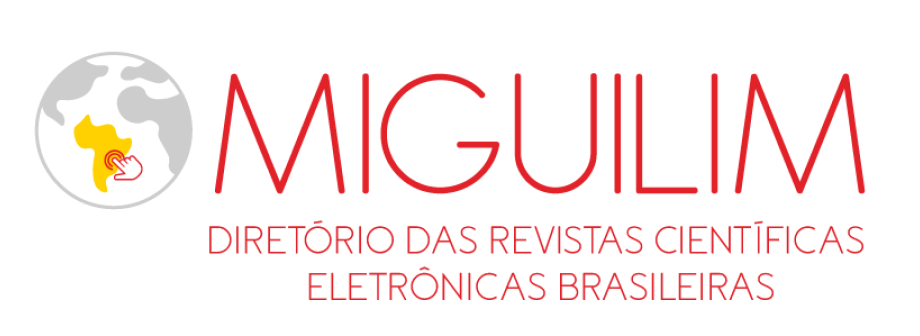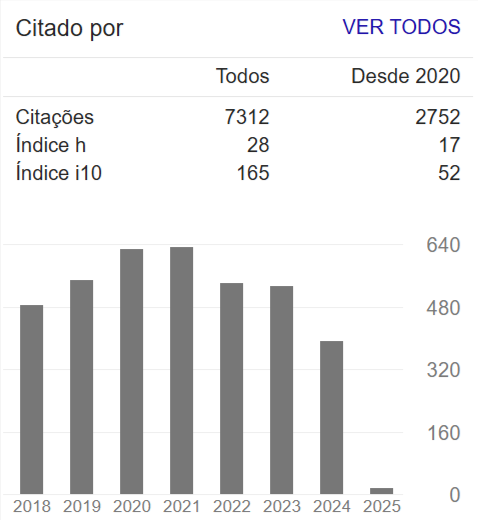Avaliação da qualidade de água para consumo humano em fonte subterrânea na região do recôncavo da Bahia
Resumo
A água é um dos recursos naturais fundamentais à vida na Terra. É considerada como um bem precioso, indispensável a todas as atividades humanas, além de consistir num componente representativo de valores sociais e culturais. A sua contaminação traduz um grande risco à saúde da população. Este trabalho apresenta a avaliação da qualidade da água para consumo, proveniente da fonte localizada no município de Catu, região do recôncavo da Bahia. As amostras foram coletadas no período de junho a agosto de 2019 em um único ponto, muito utilizada pela população local. Foram analisados parâmetros físico-químicos e microbiológicos tais como: pH, sólidos totais dissolvidos, condutividade, turbidez, cor, ferro, dureza, cloreto, flúor, coliformes totais e termotolerantes. Os valores médios para os parâmetros físico-químicos analisados foram: pH (6,8), sólidos totais dissolvidos (98,88 mg/L), condutividade (154,50 µs/cm), turbidez (0,67 NTU), cor (0,0 mg.Pt/L), ferro (0,04 mg/L), dureza (40 mg/L), cloreto (50,65 mg/L) e flúor (0,07 mg/L). Para os parâmetros microbiológicos foram identificados resultados positivos para coliformes totais e negativos para termotolerantes. Os resultados encontrados foram comparados com os valores de referência estabelecidos pela Portaria nº 2.914/11 do Ministério da Saúde, Resolução CONAMA nº 396/08 e Resolução CONAMA nº 357/05. Os valores encontrados indicaram que todos os parâmetros físico-químicos ficaram em conformidade com as legislações vigentes, no entanto, para a análise microbiológica, os coliformes totais apresentaram valores superiores aos aceitáveis, indicando possíveis contaminação por falta de manutenção.

















